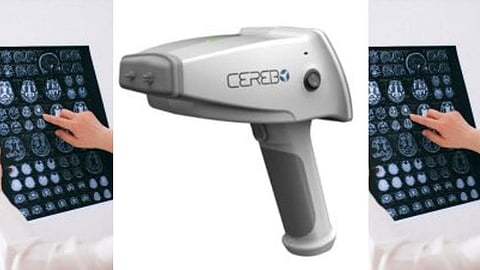

India’s top health research body, the Indian Council of Medical Research (ICMR), is urging states to adopt a revolutionary hand-held device, CEREBO, that can detect life-threatening brain injuries in just two minutes. Developed through a collaboration between ICMR’s Medical Device and Diagnostics Mission Secretariat, AIIMS Bhopal, NIMHANS, and Bioscan Research, the device promises to save thousands of lives by enabling faster trauma care.
Shaped like a hair dryer, CEREBO is the world’s smallest and first fully made-in-India portable brain injury detector. Using advanced near-infrared spectroscopy and machine learning, it can quickly identify intracranial bleeding and edema, providing radiation-free, colour-coded results.
Despite being developed in 2023 and validated by the Central Drugs Standard Control Organisation (CDSCO), awareness and adoption have remained limited.
Quick detection: Results within 2 minutes.
Affordable: Priced at around ₹15 lakh, far cheaper than CT and MRI machines.
User-friendly: Needs minimal training, self-calibrates, and eliminates the need for expert data interpretation.
Portable & versatile: Designed for ambulances, rural clinics, trauma centers, sports injuries, military, and disaster zones.
Global reach: Targeted not only for India but also for healthcare systems in Africa and the Gulf.
India has one of the highest rates of head injuries worldwide, with more than 1 lakh deaths and over 1 million serious brain injuries annually—mainly due to road accidents, falls, and sports injuries. Alarmingly, over 90% of trauma victims miss out on timely care during the golden hour, the critical window when intervention could prevent death or disability.
Scientific studies suggest that 30% of deaths from head injuries could be prevented if quality care was available promptly. With its speed, affordability, and portability, CEREBO has the potential to transform pre-hospital care and significantly reduce preventable deaths and disabilities in trauma cases.
ICMR Director General Dr. Rajiv Bahl emphasized that deploying CEREBO in tier-3 cities, rural areas, and emergency settings could greatly reduce the burden of head injury-related deaths. The device is already approved for use in India and its developers are now seeking to expand its adoption globally.